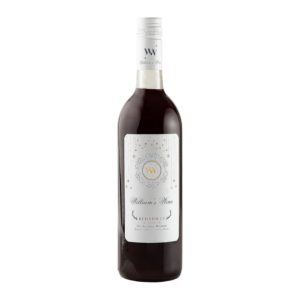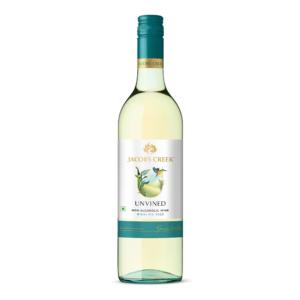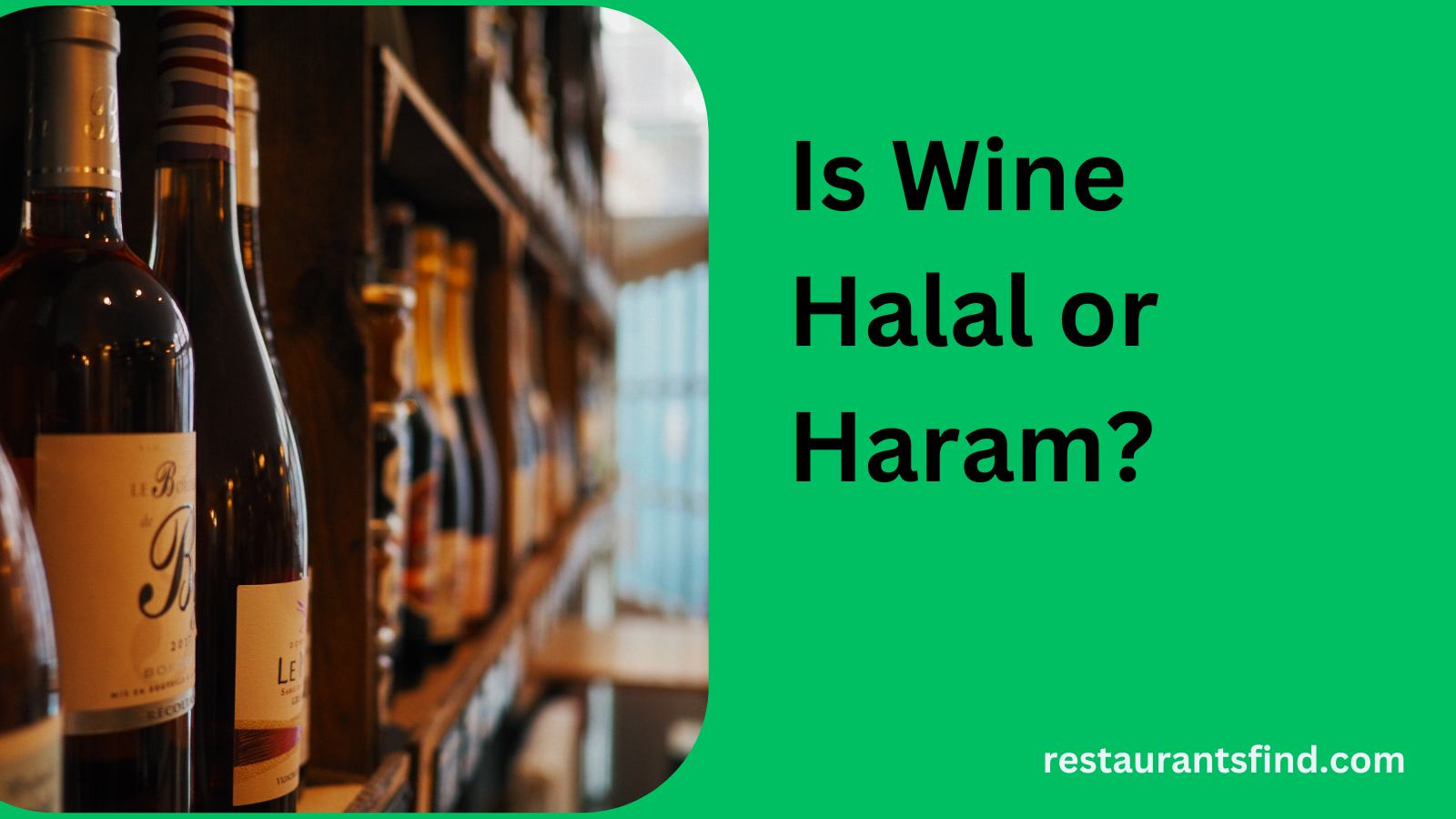Is Wine Halal or Haram: When it comes to Islam and alcohol consumption, the question of whether wine is halal (permissible) or haram (forbidden) is an important topic for many Muslims. Understanding the Islamic perspective on this matter involves exploring various teachings in the Quran, Hadith, and the views of Islamic scholars. In this blog, we will dive into what makes wine haram in Islam the context behind Islamic teachings on alcohol, and clarify the question of whether non-alcoholic wine fits into the halal or haram category.
What Does ‘Halal’ and ‘Haram’ Mean in Islam?
In Islamic law, the terms halal and haram are used to distinguish between actions or substances that are allowed or forbidden.
- Halal refers to what is permissible or lawful for Muslims to do according to the teachings of the Quran and the Sunnah (the practices of Prophet Muhammad, PBUH).
- Haram, on the other hand, refers to actions or substances that are strictly prohibited by Islamic law.
Everything in Islam is considered halal unless there is evidence to prove it is haram. This makes it important for Muslims to stay informed about the substances and practices that align with Islamic principles.
The Islamic Stance on Alcohol Consumption
In Islam, the consumption of alcohol, including wine, is regarded as haram. This is based on several key teachings found in the Quran and Hadith.
Quranic Verses
The Quran contains several verses that address alcohol consumption:
- Surah Al-Baqarah (2:219)
“They ask you about wine and gambling. Say, ‘In them is great sin and [yet, some] benefit for people. But their sin is greater than their benefit.’”
This verse acknowledges that while alcohol may have some benefits, its harms far outweigh them, marking it as a negative influence. - Surah Al-Ma’idah (5:90-91)
“O you who have believed, indeed, intoxicants, gambling, [sacrificing on] stone alters [to other than Allah], and divining arrows are but defilement from the work of Satan, so avoid it that you may be successful.”
This verse categorically forbids intoxicants (which include alcohol) and links them with the work of Satan, emphasizing the need to avoid them.
These verses establish that, while alcohol may have some social or medical benefits, it is ultimately harmful and prohibited for Muslims.
The Hadiths of Prophet Muhammad (PBUH)
There are several Hadiths (sayings and actions of the Prophet Muhammad, PBUH) that reinforce the prohibition of alcohol:
- Sahih Muslim: “Whatever intoxicates in large quantities, a small quantity of it is also haram.”
This Hadith emphasizes that even small amounts of wine or other intoxicants are not permissible, as they have the potential to lead to greater harm. - Sahih Bukhari: “Wine is the mother of all evils and is the most shameful of all the evils.”
The Prophet Muhammad (PBUH) referred to wine as the “mother of all evils,” highlighting its potential to lead people to sin and harm.
These teachings from both the Quran and Hadith clearly communicate the prohibition of alcohol in Islam.
So, is wine halal or haram? The answer is haram. Wine is considered haram, as both the Quran and Hadith clearly communicate the prohibition of alcohol in Islam
Wine as an Intoxicant
Wine, as we know it today, is an alcoholic beverage that typically comes from fermented grapes. It contains ethanol, which is the compound responsible for the intoxicating effects. In Islam, anything that causes intoxication is prohibited, and wine is no exception.
The consumption of wine can lead to impaired judgment, poor decision-making, and harmful behavior, which contradicts the Islamic principles of self-control, responsibility, and piety. Therefore, wine falls under the category of khimar, which is the general term for any intoxicating drink or substance.
Scholarly Interpretations of Wine and Alcohol
The prohibition of alcohol, including wine, is widely agreed upon among Islamic scholars across different schools of thought. Scholars from the four main Sunni schools (Hanafi, Shafi’i, Maliki, and Hanbali) and Shiite scholars all agree that alcohol is haram.
Islamic scholars argue that alcohol’s harmful effects—both socially and personally—are a reason for its prohibition. They base this prohibition on the teachings of the Quran and Hadith, as well as the general principle that anything that harms the mind and body is impermissible in Islam.
Read more: Is-Halal-Food-Kosher
What About Non-Alcoholic Wine?
Non-alcoholic wine, or grape juice, often causes confusion when it comes to halal or haram status. Non-alcoholic wine does not contain ethanol and, therefore, does not cause intoxication. Some might question whether it is permissible for Muslims to drink such beverages.
The general consensus among Islamic scholars is that non-alcoholic wine (grape juice) is halal, as it does not intoxicate the individual. However, if the drink is labeled as “wine,” it is important to avoid any connection with the notion of intoxicants, as that could potentially create confusion.
Some scholars advise caution when consuming non-alcoholic wines, as they may sometimes be used to recreate the taste or experience of alcoholic wine. It is essential to ensure that the product does not contain any haram ingredients or artificial additives.
Non-alcoholic wines, such as grape juice, are generally considered halal in Islam because they do not contain ethanol and do not cause intoxication. However, it’s important to be cautious with products labeled as “wine,” as this term can sometimes be associated with intoxicants, potentially leading to confusion. Additionally, some scholars advise caution when consuming non-alcoholic wines that aim to replicate the taste or experience of alcoholic wine, as they may contain haram ingredients or artificial additives.
Here are a few non-alcoholic wines available on Amazon India:
1. Jacob’s Creek Unvined Shiraz Non-Alcoholic Red Grape Still Wine
A refreshing medium-bodied, de-alcoholized wine offering sweet fruit flavors and a long finish.
2. DAIVIK Organic Chula Non-Alcoholic Red Wine
A non-alcoholic red wine made from organic grapes, offering a rich and smooth taste.
3. Rosegold-Imperium Non-Alcoholic Red Wine
A homemade non-alcoholic red wine available in a 375ml bottle, providing a unique flavor profile.
4. Williams Wine Non-Alcoholic Red Violet Less Sugar
A non-alcoholic red wine with reduced sugar content, available in a 750ml bottle.

5. Jacob’s Creek Riesling Unvined Non-Alcoholic White Grape Still Wine
A non-alcoholic white grape still wine offering crisp and refreshing flavors.

When selecting non-alcoholic wines, it’s advisable to review the product details and ingredients to ensure they align with halal dietary guidelines.
Cultural and Regional Differences
While the prohibition of alcohol is universally accepted across Islamic teachings, there may be varying attitudes towards the consumption of alcohol in non-Muslim-majority countries. In some societies, non-alcoholic wine or wine-like drinks may be marketed more widely, and Muslims may encounter them in social or cultural settings. The key, however, remains the same: if the product contains alcohol, it is haram; if it does not, and it is simply grape juice, it is halal.
Health and Ethical Considerations
Aside from the religious prohibition of alcohol, there are also health and ethical reasons why wine and other alcoholic beverages are considered harmful. The health risks of alcohol consumption are well-documented and include liver disease, addiction, impaired cognitive function, and accidents caused by intoxication. Islam places a high priority on the preservation of health, and anything that harms the body or mind is not permitted.
From an ethical standpoint, the production, sale, and consumption of wine can lead to social harm, including addiction, violence, and family breakdowns. Islam encourages its followers to avoid actions that harm themselves or society.
Conclusion
In conclusion, wine is considered haram in Islam due to its intoxicating properties and harmful effects on the mind and body. Islamic teachings, both in the Quran and Hadith, make it clear that the consumption of alcohol is prohibited. While non-alcoholic wine or grape juice is generally considered halal, it is important to ensure that no haram ingredients are used in its production. For Muslims, it is always best to consult scholars or seek guidance from trusted religious authorities if there is any doubt regarding the permissibility of certain products.
By adhering to Islamic principles and avoiding substances that can harm both the individual and society, Muslims can preserve their health, faith, and moral values.
FAQs
1. Is white wine halal in food?
White wine is generally considered haram (forbidden) in Islam, even when used in cooking. This is because the alcohol content remains in the dish unless completely evaporated during the cooking process, which is not always guaranteed. Since Islamic dietary laws prohibit the consumption of alcohol, dishes prepared with white wine are typically not considered halal.
2. Is non-alcoholic wine halal in Islam?
Non-alcoholic wine can be considered halal if it is completely free from alcohol. However, some “non-alcoholic” wines may still contain trace amounts of alcohol (usually less than 0.5%). To be halal, it must have no alcohol content and should not have gone through a fermentation process meant to produce alcohol. Muslims are advised to check the product label or seek clarification from halal certification bodies.
3. Is rice wine halal?
Rice wine is haram in Islam because it is an alcoholic beverage made through the fermentation of rice. Regardless of its origin or base ingredient, any product that contains intoxicating alcohol is prohibited.
4. Is wine halal or haram in Islam?
Wine is haram in Islam as it is an alcoholic beverage that can intoxicate. The prohibition of wine and other intoxicants is clearly stated in the Quran (Surah Al-Ma’idah 5:90) and reinforced in various Hadiths.
5. Is red wine sauce halal?
Red wine sauce is generally not halal because it is made with red wine, which contains alcohol. While some argue that cooking may reduce or eliminate the alcohol, Islamic scholars generally advise against consuming dishes made with wine as the original source of alcohol renders it impermissible.
6. Is red wine vinegar halal (Shia perspective)?
Red wine vinegar is typically considered halal in Islam, including from a Shia perspective, as the fermentation process changes the wine into vinegar, removing its intoxicating properties. However, it is essential to ensure the vinegar has completely turned and no alcohol remains in the product.
7. Is wine haram or halal?
Wine is haram in Islam due to its alcohol content and intoxicating nature. The Quran and Hadiths explicitly forbid the consumption of any substance that can intoxicate, including wine.
8. Is dealcoholized wine halal?
Dealcoholized wine can be halal if it has been processed to remove all traces of alcohol and is certified by a reliable halal authority. However, many dealcoholized wines may still contain small amounts of residual alcohol, making them haram unless verified otherwise.
9. Is sparkling wine halal?
Sparkling wine, like other wines, is haram because it contains alcohol. If a product labeled as “sparkling wine” is non-alcoholic and certified halal, it may be permissible, but one must confirm its alcohol-free status.

